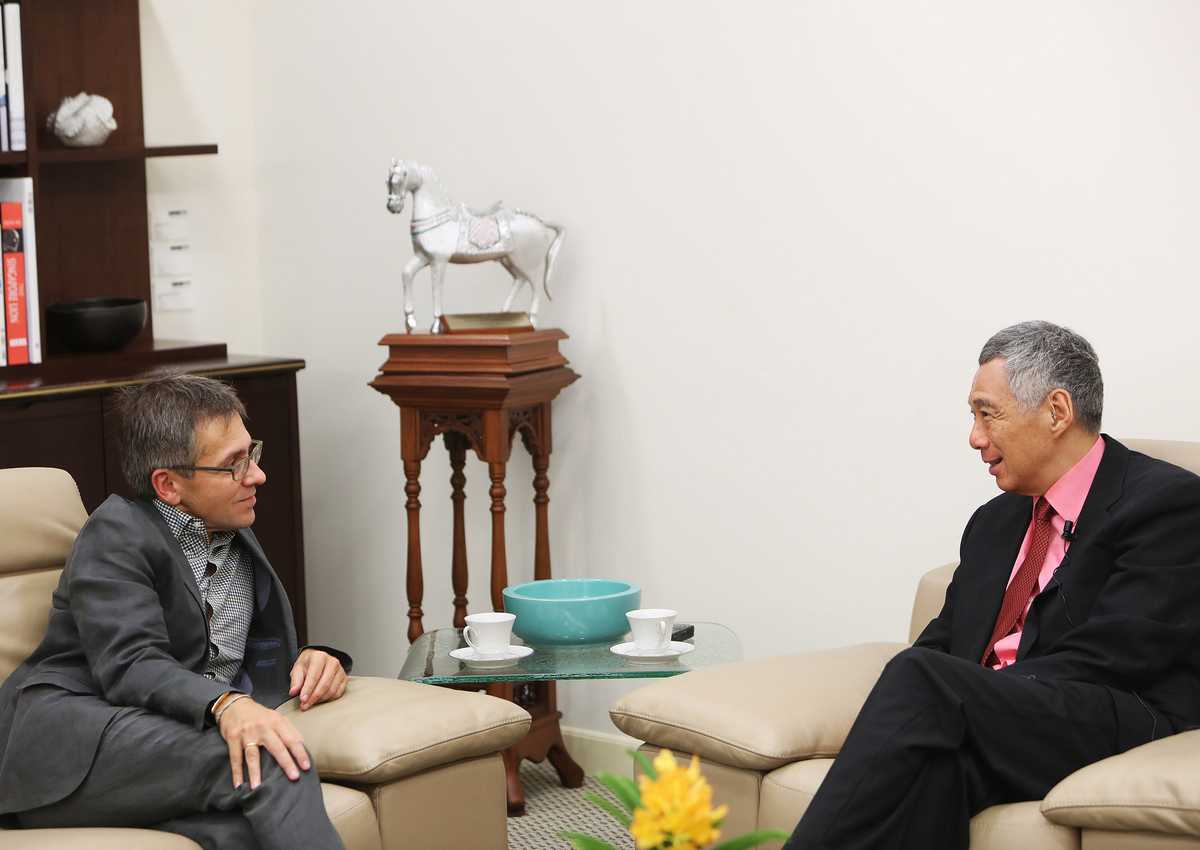SINGAPORE – The United States risks injuring its standing and credibility with several Asia-Pacific countries if the Trans-Pacific Partnership (TPP) trade deal is rejected by its lawmakers, Prime Minister Lee Hsien Loong said.
It will be a “very big setback for America” as some countries, like Japan, have gone out of their way to support the 12-nation Pacific Rim trade pact, he added.
The pact, which the Obama Administration supports, is before Congress which is in recess until after the Nov 8 presidential election.
Mr Lee, speaking last Thursday (Oct 20) in an interview with US weekly magazine Time and published in its latest edition, also said the pact needs to be ratified by January.
Otherwise, it would be a “casualty” of the US presidential election because both candidates – Mrs Hillary Clinton and Mr Donald Trump – are opposed to it.
Mr Lee indicated he was not optimistic of the pact being ratified by then.
The TPP, co-founded by Singapore, will create a giant free-trade zone and give the 12 countries access to 800 million consumers, representing one third of global trade.
It is a key thrust of the US’ foreign policy in Asia aimed at countering China’s rising influence in the Asia-Pacific.
Mr Lee said China sees trade as an extension of its foreign policy, going around to countries “with lollipops in its pockets” like giving aid or building them a Prime Minister’s office. The US does not “do these retail items”, he added.
“The one big thing which you have done is to settle the TPP, which Obama has done. It shows that you are serious, that you are prepared to deepen the relationship and that you are putting a stake here which you will have an interest in upholding,” he added.
But its credibility will take a hard knock if the pact falls through.
Japan’s Prime Minister Shinzo Abe “has made very difficult arrangements on agriculture, cars, sugar and dairy,” Mr Lee noted.
“Now you say, ‘I walk away, that I do not believe in this deal.’ How can anybody believe in you anymore?” Mr Lee said.
Similarly in strategic issues, he added. Citing North Korea, he said the country is unpredictable and is developing its nuclear capabilities and missiles.
“You do not want the South Koreans to do that, you do not want the Japanese to do that. What is the restraint on them? It is your credibility as an ally and as a deterrent.
“I do not think failing to rectify the TPP will strengthen that at all.”
There also seems to be a lack of strategic trust between US and China, Mr Lee said.
“The Chinese are convinced that you are trying to slow their growth and you are convinced that the Chinese may do something unpredictable.”
To ensure China does not push against the interest of the US, dialogue between them must happen at the top, he said.
Mr Lee noted that the US-China relationship is broad, but also different from that of the US and Soviet Union during the Cold War.
Then, they could rely on “backchannels” like former US Secretary of State Henry Kissinger’s relationships with former Soviet ambassador to Washington Anatoly F. Dobrynin and former Soviet foreign minister Andrei Gromyko.
“They were opponents, but they made some progress,” he added.
“Now you have the mechanisms with China… But I am not sure the degree to which you are able to engage and come down to brass tacks,” he said.
On the domestic front, Mr Lee discussed the challenges confronting Singapore as it restructures its economy and prepares its people for disruptive technologies and a future it cannot quite define.
“There are things you can do to help: training, transition assistance, social support if people are out of a job. But you cannot stop the change from happening,” he said.

This article was first published on Oct 26, 2016.
Get a copy of The Straits Times or go to straitstimes.com for more stories.






